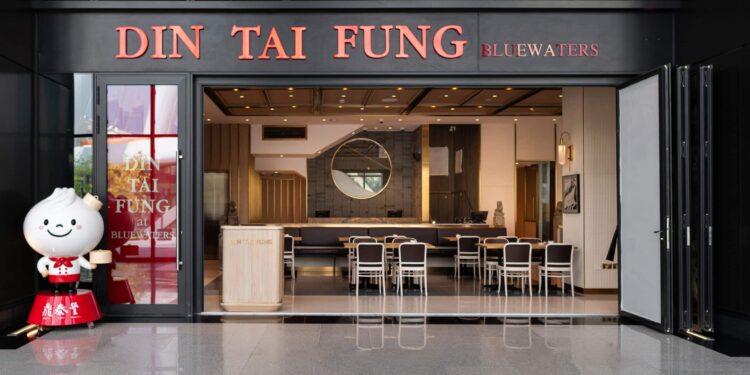The Taiwanese dumpling chain Din Tai Fung has established itself as a dominant force in Seattle’s restaurant scene, generating an estimated $81 million annually across its three Washington locations at Bellevue’s Lincoln Square, University Village, and Pacific Place.
Each restaurant averages nearly $27 million in annual revenue, placing them among the nation’s highest-grossing dining establishments. This performance significantly exceeds industry standards, particularly as many Seattle-area restaurants reported 5% sales declines in the first quarter compared to 2023.
The success reflects sustained consumer demand despite premium pricing. Signature pork xiao long bao cost approximately $18 for ten dumplings, with crab-and-pork variations reaching $22. Weekend wait times frequently exceed one hour, with customers reporting waits ranging from 20 to 90 minutes during peak periods.
Din Tai Fung’s Washington operations stand out in an industry where average restaurant profit margins reached just 1.5% statewide in 2023, compared to 4% nationally. The chain’s commitment to fresh, made-to-order preparation, including the signature 18-fold dumpling technique, supports premium positioning that resonates with regional diners.
The economic impact extends beyond direct revenue. Each location employs dozens of workers across kitchen, service, and management roles, providing employment stability in an industry known for high turnover rates. This consistent hiring contributes to post-pandemic employment recovery in both Seattle and Bellevue.
Real estate costs significantly impact operations, with Bellevue retail space averaging $38 per square foot. Premium locations at Lincoln Square, University Village, and Pacific Place command higher rates, reflecting the chain’s strategic positioning in high-traffic retail destinations.
Washington’s tax structure generates substantial public revenue from Din Tai Fung’s operations. Based on estimated annual revenue, the restaurants contribute approximately $380,000 in business and occupation taxes annually, plus additional sales tax revenue from customer transactions.
The chain’s reliance on fresh ingredients strengthens regional supply networks, creating demand for local distributors and indirectly supporting Pacific Northwest agricultural suppliers through daily delivery requirements for produce, specialty meats, and seafood.
Din Tai Fung’s success demonstrates how international dining concepts can establish deep market penetration in the Pacific Northwest. The combination of consistent quality, experiential dining, and strategic location selection has created what effectively functions as a regional dining institution.
Consumer willingness to wait extended periods and pay premium prices indicates the brand has transcended typical restaurant categorization, operating more as a destination dining experience. This positioning allows the chain to maintain pricing power even as broader restaurant industry faces margin pressures.
The $81 million annual spending figure represents significant discretionary dining expenditure within the regional economy, reflecting both the Seattle area’s dining culture and residents’ willingness to invest in quality food experiences despite higher living costs.







